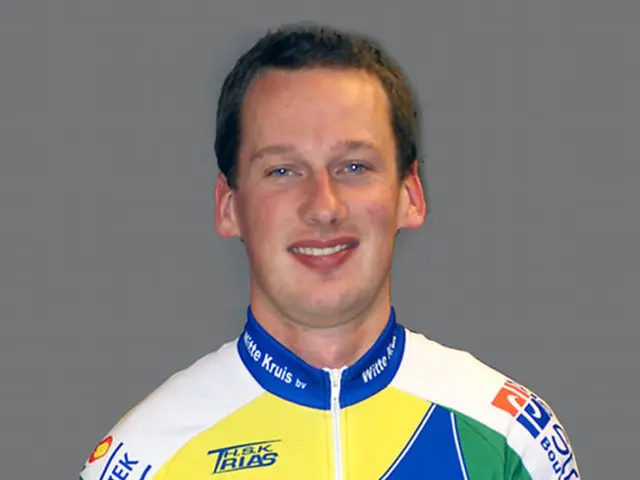Implementing Player Registration, Psychologist Role at the Regulatory Body, and Educational Strategies: Could Ukraine Adopt Responsible Gambling Methods from Latvia?
Article Rewrite
Latvia's gambling scene took flight in 1991, boasting 19 operators now, with online casinos raking in the most dough, boasting GGR of nearly 98 million euros in the first nine months of 2024. Slot machine halls follow close behind, bringing in 96 million euros.
Regulating this scene is akin to Europe in general, yet there are differences to note. Here, individuals as young as 18 can gamble, though discussions about raising the age to 21 are ongoing. Latvia possesses a Self-Exclusion Register, but only players themselves can initiate their addition, unlike in other regions where close relatives can take this action. As of October 2024, the register carries 34,974 names, including those whose exclusion period has lapsed, totaling 71,516 - almost 1.8% of the country's population. According to a survey by the Ministry of Health, 82% of Latvians support the existence of such a register.
The regulatory body proudly sports a psychologist who lends a helping hand to problematic or potential problematic players. This assistance is easily accessible whenever needed.
During the first nine months of 2024, the psychologist at the Lottery and Gambling Supervisory Inspectorate engaged in 286 face-to-face and 216 online individual consultations with players and their relatives via the internet. They processed 177 applications for self-exclusion and answered over 100 questions, as indicated in the study.
Player registration is mandatory in gaming establishments, with their data stored in a registry to prevent minors from participating, prevent the criminalization of income, and prevent terrorism financing. Upon first registration, a player receives a visitor card to gain entry to the hall. Every month, information about clients is transmitted to the regulator. Operators are strictly prohibited from providing loans for games or offering free play. If signs of problematic gaming are spotted, they must cease providing gaming services to the client in question.
Latvia intends to strengthen its responsible gaming system in the near future. They aim to introduce smart cards for players in land-based gaming establishments, allowing for effortless setting of time and stake limits. By 2027, the regulator intends to host nationwide events to raise public awareness of the risks of addiction and available help.
The experience of Latvia indicates that a blend of required player identification, psychological support, and clear responsible gaming rules can foster a safer gaming environment, boosting trust in licensed gambling. Slots City, a company that closely examines international responsible gaming practices, believes that the EU's methods, such as Latvia's, can help Ukraine develop effective tools for player protection and the fostering of a legitimate gambling market.
"We closely scrutinize international responsible gaming practices and support initiatives aimed at player safety. Analyses of best practices from the EU, like the Latvian regulatory model, can assist our market in creating effective tools for player protection and the prosperity of legal gambling," the company commented.
When it comes to Latvia's and Ukraine's responsible gaming systems, recent information about Latvia's system can be gleaned from a recent agreement between Paf and four other operators to bolster responsible gaming practices[2]. Ukraine's system, however, is not addressed in the available materials. Below is a structured comparison based on the accessible data and standard industry practices:
Latvia's Responsible Gaming Framework (as per recent agreements)
- Multi-operator collaboration: A collaboration among five gaming companies, though the specific measures included remain confidential[2].
- Common practices (likely included): Age verification, deposit limits, self-exclusion tools, and real-time monitoring (in line with global trends, but not explicitly confirmed here).
Ukraine's System
Not specified in the search results. In emerging markets, common practices often involve:- Regulatory requirements: Licensing mandates for responsible gaming tools (such as self-exclusion registers).- KYC protocols: Identity verification to prevent underage gambling.
Key Comparison
| Feature | Latvia (Recent Agreement) | Ukraine (Typical Practices) ||-------------------------|---------------------------------------------------|----------------------------------------------------|| Collaboration | Multi-operator alliance[2] | Likely individual operator compliance || Regulatory Push | Industry-led standardization | Government-driven mandates (assumed) || Tools | Undisclosed, possibly real-time monitoring and limits | Basic self-exclusion and KYC (speculative) |
For a precise comparison between Latvia and Ukraine, access to the specific Slots City/RGC study or Ukrainian regulatory documents would be required, which are not available in the provided search results. The Latvian update emphasizes collective action, whereas Ukraine's approach remains unclear here.
If you have access to the specific study or additional sources, further analysis can be refined.
- The Latvian gambling scene, with its 19 operators, has shown significant growth, particularly in the online casino sector.
- Individuals as young as 18 are allowed to gamble in Latvia, but discussions are ongoing to raise the age to 21.
- The self-exclusion register in Latvia is player-initiated, unlike in other regions where relatives can also initiate the process.
- During the first nine months of 2024, the psychologist at the Lottery and Gambling Supervisory Inspectorate provided assistance to 502 individuals through face-to-face and online consultations.
- In Latvia, player registration is mandatory, and their data is stored in a registry to prevent minors from participating, prevent the criminalization of income, and prevent terrorism financing.
- Latvia plans to strengthen its responsible gambling system by introducing smart cards for players in land-based gaming establishments and hosting nationwide events to raise public awareness about addiction risks.
- Slots City, a company studying international responsible gaming practices, believes that the EU's methods, such as Latvia's, can help Ukraine develop effective tools for player protection and the growth of a legitimate gambling market.
- One key difference between Latvia and Ukraine's responsible gambling systems is that Latvia has a multi-operator collaboration to bolster responsible gaming practices, while Ukraine's approach remains unclear in the provided materials.








